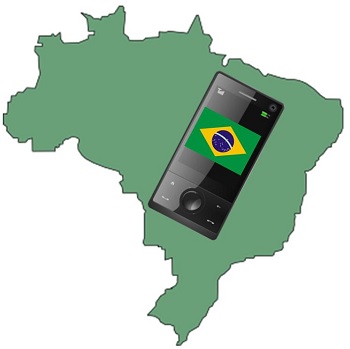New shopping startup could make mobile shopping easier
Numerous companies are trying their hand in the mobile commerce market, but few are taking steps to introduce more convenience to this space. Mobile payments have become quite popular because of their convenient nature, but one company wants to take this convenience to a new level. Curbside, a shopping startup backed by $9.5 million in seed and Series A funding, aims to make the mobile shopping experience easier for consumers.
Curbside partners with retailers to make it more convenient for consumers to shop online and pick up products
Curbside plans to facilitate mobile shopping through its retail partners, of which Target is included. The Curbside application can be used by consumers to shop from an existing inventory provided by the company’s retail partners. Products can be purchased directly through the app, and Curbside will pick up these products so they can be retrieved by the shopper on the same day. The app uses geolocation technology to alert retailers where a customer has arrived at a store. Retail associated will then deliver purchased products directly to a consumer’s vehicle.
Retailers have had trouble engaging mobile shoppers in the past
 Curbside may be a good way for retailers to engage mobile consumers more effectively. The convenience that the service offers is expected to be well received among consumers, but Curbside is currently only available in a very limited area. In partnering with Target, the company hopes to begin expanding more quickly in the coming years.
Curbside may be a good way for retailers to engage mobile consumers more effectively. The convenience that the service offers is expected to be well received among consumers, but Curbside is currently only available in a very limited area. In partnering with Target, the company hopes to begin expanding more quickly in the coming years.
Retail industry must adapt to the interests of mobile consumers
Mobile commerce has become a powerful force in the retail industry. Many retailers are trying to engage the growing number of mobile consumers that want to make use of services that are specifically designed for their smartphones and tablets. This has proven to be a difficult task, however, and many retailers have had trouble engaging mobile consumers effectively. Companies like Curbside could be a major benefit for the retail industry, providing them a way to connect with mobile shoppers without having to develop a completely new mobile commerce solution.
According to a recent announcement among top industry players, Brazil isn’t reaching its full m-commerce potential.
Some of the top players in the mobile commerce industry in Brazil have now revealed that this channel is being held back by limited profit margins and unstable broadband service in the country for medium and small sized retailers.
Moreover, there is also an overall lacking in terms of the awareness of the potential of m-commerce in this sector.
This, according to the primary mobile commerce complaints that were brought up during the Mobile+ forum which held panel discussions in São Paulo. Among the top problems that were identified during these discussions were the low profit margins that could be expected by retailers who participated in promotions such as “deal of the day” strategies. According to the CEO of the Kekanto city guide service, Fernando Okumura, “Sometimes the price of the ticket you can charge from a small retailer is not enough to be profitable.”
This shows that it is very difficult for smaller businesses to keep up with the requirements of mobile commerce.
 The issue isn’t necessarily with the methods that are available. Instead, it is in the understanding of the m-commerce channel, as a whole. For example, it was pointed out that it seems that small retailers may not be realizing that these daily deal coupons are designed to be used as an opportunity to advertise to a vast audience, as opposed to actually being an opportunity to profit from that specific sale.
The issue isn’t necessarily with the methods that are available. Instead, it is in the understanding of the m-commerce channel, as a whole. For example, it was pointed out that it seems that small retailers may not be realizing that these daily deal coupons are designed to be used as an opportunity to advertise to a vast audience, as opposed to actually being an opportunity to profit from that specific sale.
For example, many businesses use daily deal smartphone marketing coupons to get consumers in through the doors of their businesses. While they may not profit on the specific sale associated with the coupon, those same consumers may purchase something else while they are there, or they may learn about the businesses and return again another time, becoming a regular shopper.
Therefore, while this mobile commerce technique should be considered to be an advertising expense, it is being misinterpreted by some businesses and their opportunity is, therefore, being lost. This illustrates a clear need for greater education of businesses with regards to the use of mobile marketing and shopping offers and the way that smartphones can generate greater sales in-store.
 Curbside may be a good way for retailers to engage mobile consumers more effectively. The convenience that the service offers is expected to be well received among consumers, but Curbside is currently only available in a very limited area. In partnering with Target, the company hopes to begin expanding more quickly in the coming years.
Curbside may be a good way for retailers to engage mobile consumers more effectively. The convenience that the service offers is expected to be well received among consumers, but Curbside is currently only available in a very limited area. In partnering with Target, the company hopes to begin expanding more quickly in the coming years.
 The issue isn’t necessarily with the methods that are available. Instead, it is in the understanding of the m-commerce channel, as a whole. For example, it was pointed out that it seems that small retailers may not be realizing that these daily deal coupons are designed to be used as an opportunity to advertise to a vast audience, as opposed to actually being an opportunity to profit from that specific sale.
The issue isn’t necessarily with the methods that are available. Instead, it is in the understanding of the m-commerce channel, as a whole. For example, it was pointed out that it seems that small retailers may not be realizing that these daily deal coupons are designed to be used as an opportunity to advertise to a vast audience, as opposed to actually being an opportunity to profit from that specific sale.